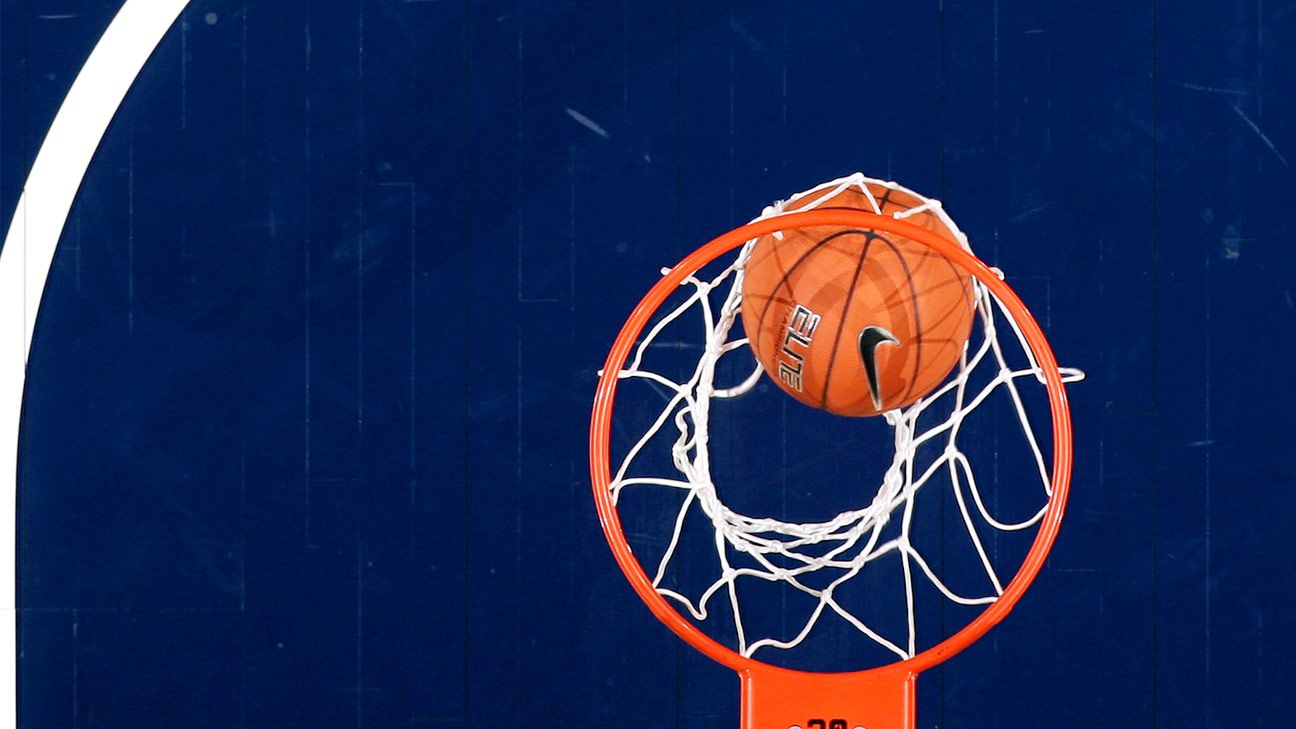Attempts to resume professional basketball games have fallen flat in Asian countries where the coronavirus first appeared, creating pessimism for a return to normalcy in the United States and Europe, where the race to contain the pandemic is in much earlier stages.
The Japanese B League is the latest to suffer a setback, after a league-wide meeting determined that the rest of the season will be canceled. This decision follows the cancellation of the South Korean KBL and the postponement of the Chinese CBA.
“We’ve prioritized the mental and physical health of our players, coaches and club officials,” league chairman Masaaki Okawa said in a video news conference, according to the Japan Times. “The spread of this coronavirus has been beyond our imagination and we’ve emphasized that we cannot afford to expose our players and others who are associated with our league to the danger.”
The league, in conjunction with the players’ association, had canvassed opinions from local and foreign players and coaches in the past week, who had widely expressed significant safety concerns around resuming the season on April 1 as planned. The league had been on hiatus from mid-February through mid-March, playing one “chaotic weekend” of games before suspending the league again.
One Spanish player for the B League, David Doblas, expressed his disappointment on social media.
allすべてのファンとスポンサーに感謝します。 悲しいことに、この状況で決断するのは難しいですが、正しいことです。
Thanks to all the fans and sponsors. It’s a sad this situation and hard to take the decision but is the right thing to do. https://t.co/IcVhG8OawB
— David Doblas (@DavidDoblas) March 27, 2020
“Japan has not been testing to keep the numbers down and to keep the Olympics,” one American in Japan familiar with the situation told ESPN. “Now that the Olympics are off the table, Japan is willing to recognize they don’t have this under control. We’re all ready to just get back home to regroup. I have never been more ready for a season to just end. I love Japan, but this season of starting, stopping, and trying to start again has been too much mentally. They were holding on for dear life because of the Olympics and the league’s massive TV deal with SoftBank, which is a huge mobile and internet company out here.”
The VTB League, one of the biggest leagues in Europe, also elected to throw in the towel, canceling its season on Thursday. The VTB League consists of teams from Russia, Poland, Belarus, Estonia and Kazakhstan, including Euroleague teams CSKA Moscow, Khimki and St. Petersburg.
The VTB League was initially adamant about resuming play on April 10, with some of its clubs (such as CSKA and Khimki) continuing full-contact practices despite two teams being forced into quarantine after an assistant coach from Estonia had contracted the virus.
Ultimately the Russian government’s decision to halt all air travel forced the VTB’s hand, as the many foreign players under contract around the league were adamant about being allowed to return home to avoid being stuck indefinitely, a source told ESPN. The hockey equivalent of the pan-European VTB, the KHL, has also elected to cancel its season, essentially sealing the basketball competition’s fate.
The VTB is the first major league in Europe to cancel its season, joining Austria, Czech Republic, Denmark, Estonia, Finland, Hungary, Iceland, Latvia, Luxembourg, Netherlands, Norway, Poland, Slovenia, Belgium, Bosnia, Cyprus, Ireland, Lithuania, Sweden, Switzerland, Slovakia and Ukraine. Israel and Greece have left a small window of opportunity open but have all but given up hope of playing any additional games.
Meanwhile, the Euroleague, considered the second-most prestigious league in the world after the NBA, continues to express hope of completing its season. The Euroleague Shareholders Executive Board met remotely on Wednesday, stating afterward that “competitions will resume once the situation allows there to be optimal health and safety conditions for all participants, following the recommendations of relevant health authorities and local governments. Prioritizing the finish of the EuroLeague season with its existing format, meaning playing the remaining Regular Season, Playoffs and Final Four phases. This would most probably imply ending beyond the originally scheduled May dates, with game frequency potentially being condensed, if necessary.”
Addressing the looming conflicts brewing between teams and players regarding how to approach payments per contractual agreements, the board proposed “adjusted salary payments during the competitions suspensions,” while recommending “making the financial stability and fair play Regulations more flexible until there is more certainty on the future evolution of the financial situation.”
FIBA also addressed this topic in a release sent to national team federations this week, writing “we’ve been approached a number of times in the last weeks regarding the status of employment contracts in professional basketball, especially in view of ‘force majeure’ being often invoked as a reason to terminate contracts or not perform under them. We encourage all registered players, coaches, agents and clubs to acknowledge the unique circumstances we are all going through and reach agreements with mutual concessions to the extent possible.”
In Turkey, Ali Koc, president of Euroleague team Fenerbahce, informed staff that six athletes and other organization members had shown symptoms of COVID-19. The Turkish league was the last major competition in Europe to suspend play.
In Italy, Umberto Gandini, newly elected president of the Italian basketball first division (Serie A), reiterated in a streamed press conference the league’s preference for completing the season by June 30, with fans present at games if possible. Gandini explained that players’ contracts expire on June 30 for the season, and that the lack of air-conditioning in every arena could create unsafe conditions for players and spectators. Gandini said teams must resume training by May 16 in order to complete the season in a timely fashion, ideally starting no later than June 1, but citing that flexibility does exist for alternative playing formats if necessary.
The 17 teams in the Italian first division would reportedly lose up to 40 million Euro if the season is canceled.
